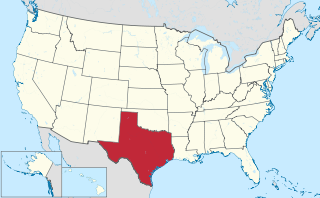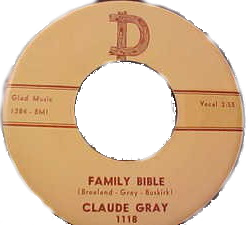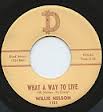Related Research Articles

The U.S. state of Texas has long been a center for musical innovation and is the birthplace of many notable musicians. Texans have pioneered developments in Tejano and Conjunto music, Rock 'n Roll, Western swing, jazz, punk rock, country, hip-hop, electronic music, gothic industrial music, religious music, mariachi, psychedelic rock, zydeco and the blues.

Gold Star Records is an American independent record label, which was founded in 1941.

Albert Gene Collins was an American electric blues guitarist and singer with a distinctive guitar style. He was noted for his powerful playing and his use of altered tunings and a capo. His long association with the Fender Telecaster led to the title "The Master of the Telecaster".

Douglas Wayne Sahm was an American musician, singer-songwriter and multi-instrumentalist born in San Antonio, Texas. Sahm is regarded as one of the main figures of Tex-Mex music, and as an important performer of Texan Music. He gained fame along with his band, the Sir Douglas Quintet, with a top-twenty hit in the United States and the United Kingdom with "She's About a Mover" (1965). Sahm was influenced by the San Antonio music scene that included conjunto and blues, and later by the hippie scene of San Francisco. With his blend of music, he found success performing in Austin, Texas, as the hippie counterculture soared in the 1970s.

Don Deadric Robey was an American record label executive, songwriter, and record producer. As the founder of Peacock Records and the eventual owner of Duke Records, he was responsible for developing the careers of many rhythm and blues artists in the 1950s and 1960s. He was the first African American record mogul, 10 years prior to Berry Gordy's Motown label.
SugarHill Recording Studios is a recording studio in Houston, Texas. Originally founded in 1941 as Quinn Recording, it is the oldest continuously operating studio in the United States. Renamed Gold Star Studios in 1950, the studio was important in launching the careers of such artists as Lightnin' Hopkins, The Big Bopper, George Jones, the Sir Douglas Quintet, Roy Head, and Freddy Fender. In the early 1970s under the ownership of Huey P Meaux, the studio's name was changed to SugarHill Recording Studios. A landmark in the Houston music community, the studio is renowned for its collection of vintage recording equipment, reverb chamber rooms, EMT plates and a long history of music.

David Allen Stich, also known as Rockin' Dave Allen and Dave Allen, was an American blues guitarist, singer and songwriter. Allen performed live throughout Texas and the Gulf Coast area from the late 1950s through the early 1980s. He recorded for the Jin, Eric, International Artists, Rock-a-Billy and Big Orange record labels for a total of sixteen 45 sides and two vinyl LPs. Some of this material has also appeared on compact disc anthologies by Ace Records. Approximately eighty minutes of Allen’s recordings remain unreleased.

Lillia Lavell "Lavelle" White is an American Texas blues and soul blues singer and songwriter. After performing most of her adult lifetime, White released three albums, the first of which was issued in 1994, when she was aged 65.

"Night Life" is a song written by country music singer-songwriter Willie Nelson. Nelson was inspired to write the song during one of his trips from his home in Pasadena, Texas, to his work, singing at the Esquire Ballroom in Houston.
Trudy Lynn is an American electric blues and soul blues singer and songwriter, whose recorded work has been released on twelve studio albums, one live album, and four compilation albums.
Joe Medwick, probably born Medwick N. Veasey though some sources suggest Joe Medwick Masters or Joe Medwick Veasey, was an American rhythm and blues singer and songwriter. He is officially credited with writing relatively few songs, including "Further On Up The Road", but is widely believed to have written many others, including "I Pity the Fool" and "Turn On Your Love Light". He sold all rights over many of his songs cheaply to record label owner Don Robey. Medwick also recorded under various names including Joe Veasey, Joe Masters and Joe Melvin.

"Family Bible" is a song written by country music singer-songwriter Willie Nelson. Nelson began writing the song in 1957, while he enjoyed success as a disc jockey in KVAN, in Vancouver, Washington. After being denied a raise by the station, he moved to Houston, Texas. Due to financial issues he sold the song to Paul Buskirk.
"The Storm Has Just Begun" is a song by country music singer-songwriter Willie Nelson. Nelson wrote the song at the age of twelve. While working for KBOP in Pleasanton, Texas, in 1955, the song was one of the first two ever recorded by Nelson.

"What a Way to Live" is a song written by country music singer Willie Nelson. He recorded the song on his second session with D Records, after moving to Houston, Texas. Produced by Bill Quinn, it was cut at Gold Star Studios in March 1960.

"Sometime" is a song written by Gene Thomas, originally released by Venus Records in 1961. After it enjoyed regional success, it was reissued on the United Artists label. The song became a top 100 hit on the national chart. The song was later covered by Doug Sahm and by the Flamin' Groovies.
Down in Houston: Bayou City Blues is a 2003 book written by Roger Wood, with photographs from James Fraher, published by the University of Texas Press; it is No. 8 of the Jack and Doris Smothers Series in Texas History, Life, and Culture. Down in Houston discusses the African-American musical culture that was established in Houston, Texas, particularly that of the Third Ward and Fifth Ward. Larry Willoughby of Austin Community College described the book as "an oral history, a socio-cultural study, a beautifully photographed pictorial, and a musicologist's primary source bonanza."

Taking It Home is a studio album by the zydeco musician Buckwheat Zydeco, released in 1988. Zydeco supported the album with a North American tour. The title was also used for a 1990 video release of a Buckwheat Zydeco show recorded in London.

Truckin' with Albert Collins is an album by the American musician Albert Collins, released in 1969. It was originally released as The Cool Sounds of Albert Collins, in 1965. It was reissued by MCA Records in 1991.
References
- 1 2 3 4 5 Bradley, Andy; Wood, Roger (March 1, 2010). House of Hits: The Story of Houston's Gold Star/SugarHill Recording Studios. University of Texas Press. ISBN 9780292783249 – via Google Books.
- ↑ Wood, Charles Roger; Fraher, James (April 1, 2003). Down in Houston: Bayou City blues. University of Texas Press. ISBN 9780292791596 – via Google Books.
- ↑ Bradley, Andy; Wood, Roger (April 1, 2010). House of Hits: The Story of Houston's Gold Star/SugarHill Recording Studios. University of Texas Press. ISBN 9780292719194 – via Google Books.
- 1 2 Rubin, Dave (January 1, 2007). Inside the Blues: 1942 to 1982. Hal Leonard Corporation. ISBN 9781423416661 – via Google Books.
- ↑ Eagle, Bob L.; LeBlanc, Eric S. (May 1, 2013). Blues: A Regional Experience. ABC-CLIO. ISBN 9780313344244 – via Google Books.
- 1 2 Govenar, Alan B. (9 October 2008). Texas Blues: The Rise of a Contemporary Sound. Texas A&M University Press. pp. 223–. ISBN 978-1-58544-605-6 . Retrieved 4 July 2013.
- ↑ Bradley, Andy (March 2010). House of Hits. University of Texas Press. pp. 83–. ISBN 978-0-292-78324-9 . Retrieved 23 June 2013.
- ↑ Obrecht, Jas, ed. (1993). Blues Guitar: The Men Who Made the Music. 2nd ed. Miller Freeman Books. pp. 246–259. ISBN 0-87930-292-5.
- ↑ Jasinski, Laurie E. (February 22, 2012). Handbook of Texas Music. Texas A&M University Press. ISBN 9780876112977 – via Google Books.
- ↑ Larkin, Colin (April 28, 1998). The Virgin Encyclopedia of the Blues. Virgin. ISBN 9780753502266 – via Google Books.
- ↑ Charles Roger Wood; James Fraher (1 April 2003). Down in Houston: Bayou City blues. University of Texas Press. ISBN 978-0-292-79159-6.
- ↑ Greensmith, Bill; Camarigg, Mark; Rowe, Mike (September 30, 2015). Blues Unlimited: Essential Interviews from the Original Blues Magazine. University of Illinois Press. ISBN 9780252097508 – via Google Books.
- ↑ "Living Blues". Center for the Study of S Southern Culture, The University of Mississippi. April 28, 2003 – via Google Books.
- ↑ "The Freeman Twins, Henry Hayes and His Orchestra – Two Big Feet / Call of the Kangaroo (Vinyl)". Discogs .
- ↑ Smackin' that wax : the Kangaroo Records story, 1959-1964. Collectables. June 5, 1992. OCLC 045536770.